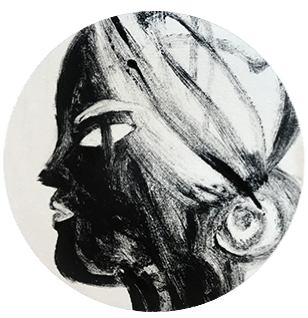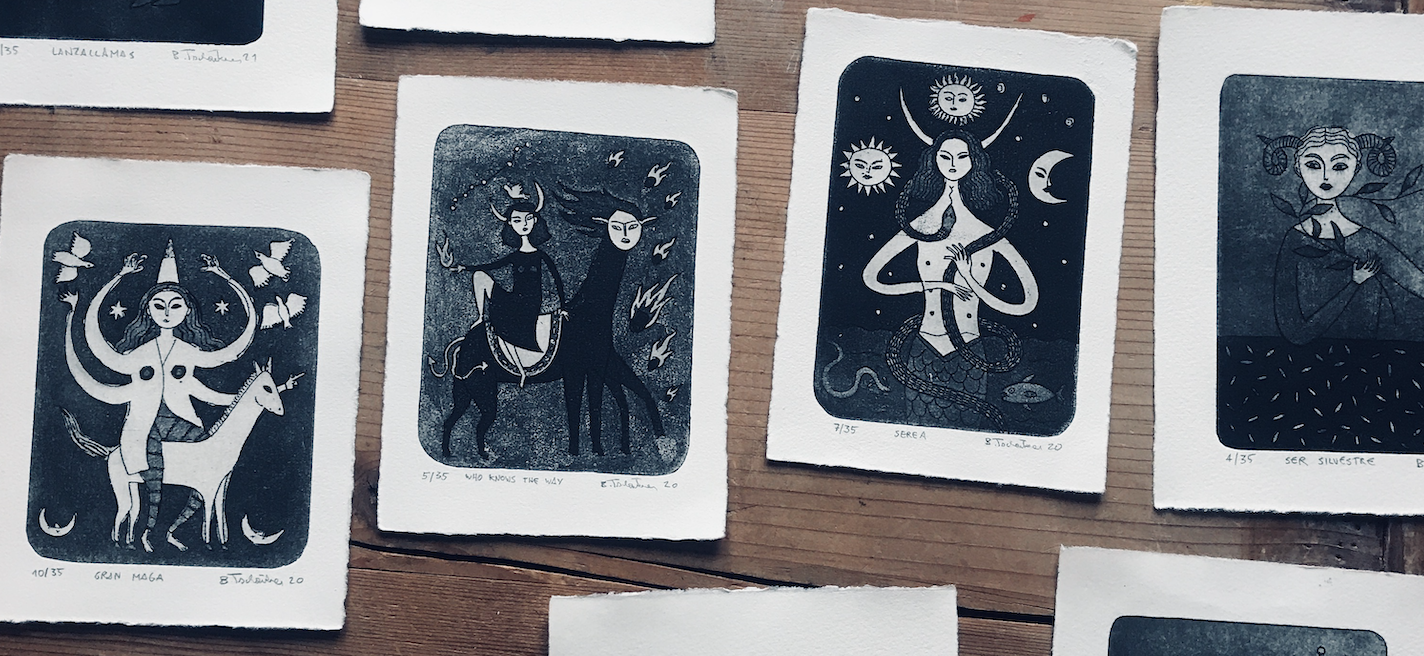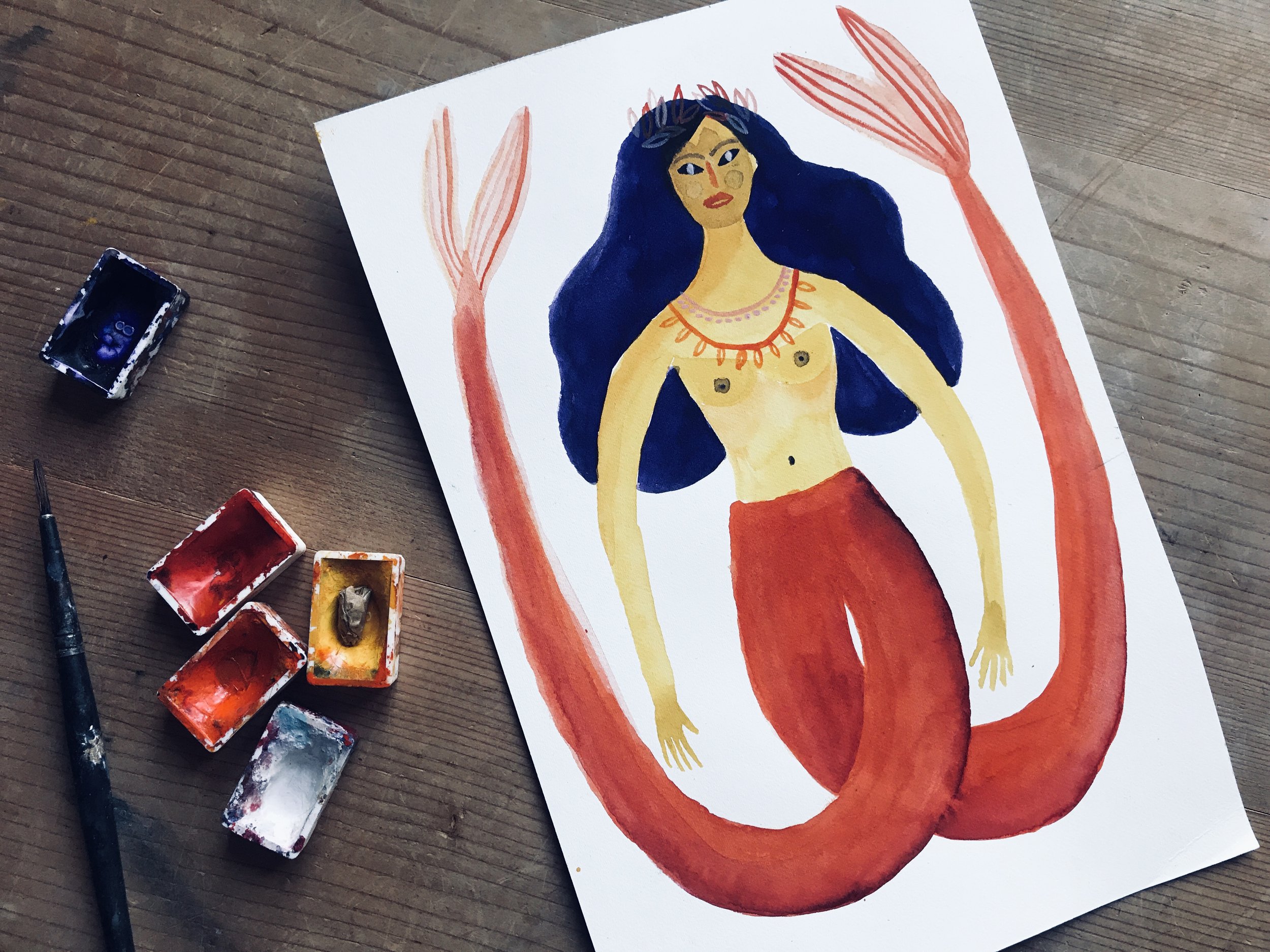Some days ago an Iranian friend told me about Melmedas, a two-tailed mermaid from Hormuz island.
Hormuz Island, a small island in the Persian Gulf, is largely unknown nowadays, but once, it was one of the most important harbors in the middle east and one of the richest trading cities in the world. Hormuz Island was legendary, a well-known metaphor for wealth in the Western world.
The island is small and completely barren – it’s all rocks with a few shrubs here and there. There is no source of water. The sun is hot and white all year round.
Hormuz island still has some treasures: Its colored rocks, a fascinating landscape of deep red, ochre, and blue, which makes it unique in the world and beloved by Iranian artists.
Due to some strange circumstances, a few years ago, I ended up on Hormuz island.
The sun was about to set in Bandar Abbas when I entered the ferry to Hormuz island. It was a small ferry, and there were not many people on it. There was a congregation of bearded Mullahs and a few women wrapped in flowered hijabs, hiding their eyes behind masks that were clearly of African heritage.
Many people who live here are descendants of African slaves. You can sense Africa and India, on their food, in their clothes, in their music.
The South of Iran is a confusing place. I’ve been to many cultural melting pots, but this place, maybe because it is so desolate, so barren, gives you a feeling that is hard to describe. You cannot describe this place as a “melting pot”, because what you see does not feel whole, it feels fragmented.
It somehow makes the needle of your inner compass spin restlessly. You walk through the bazaars, one moment you think you are in India; the next moment you are in Africa. Things feel familiar, but the place as a whole feels infinitely foreign, foreign to itself even. You feel like you are everywhere, and nowhere.
On the ferry, there were some women. We tried to talk, but their English was worse than my Farsi, which already was barely existent. They couldn’t believe that I was alone and kept asking me about my shohare, which means husband in Farsi.
Before I had reached it, I knew that this island was a very improbable place to find myself in.
There was no hotel or restaurant. I was sleeping on a carpet in an empty room next to the ocean and ate in an informal restaurant in the living room of some family. Hormuz Island was a few houses, a small port, and a couple of fishermen on the beach. And the rocks.
There were landscapes of blood-red rocks and metallic beaches with silver sand so hot that you almost couldn't touch it. On the coast, men were carving huge fantastical ships out of wood that seemed out of space and time, and there was a sad Portuguese fort, decayed, displaced, almost gone, infinitely far away in time. Inside, you found a couple of stray dogs.
There was not much more on this strange island.
But now I know that two-tailed mermaids live on this island as well. What fascinates me about the Melmedas is that unlike the Melusina, two-tailed mermaid from Northern Europe, who has spread her tails joyfully in a gesture that feels almost sexual, her tails are folded over each other, which gives her an air of reserve, of prudence, maybe of hostility. They remind me of scissors. Like other female water spirits, embodying lust and danger, the Melmedas favorite pastime is to entice men. They appear in the shape of a beautiful young woman, hiding her two fishtails under the water. Once the man is in her net, turns into an ugly old woman and rips him into pieces with her fishtails.
I wonder what the fishermen from Hormuz would have told me about them.


